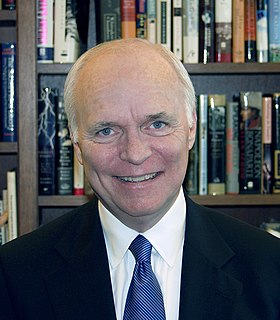A Quote by Brian Lamb
We have more voices from more points of view on the C-SPAN call-in show than I've heard anywhere else. You can literally tune us in every day and hear it all. You can't control it, and you shouldn't control it.
Related Quotes
Many people believe that decentralization means loss of control. That's simply not true. You can improve control if you look at control as the control of events and not people. Then, the more people you have controlling events - the more people you have that care about controlling the events, the more people you have proactively working to create favorable events - the more control you have within the organization, by definition.
As you progress as a basketball player, the world around you becomes more and more chaotic. There's more talent, there are more distractions - and these are all factors that create a lack of control. By having a routine, by having habits that I can fall back on, it's my way of enacting control. It's the only thing I can control.
About life: "It is not complicated unless I make it so. It is not difficult unless I allow it to be. A second is no more than a second, a minute no more than a minute, a day no more than a day. They pass. All things and all time will pass. Don't force or fear, don't control or lose control. Don't fight and don't stop fighting. Embrace and endure. If you embrace, you will endure.
Our problems are both acute and chronic, yet all we hear from those in positions of leadership are the same tired proposals for more government tinkering, more meddling and more control---all of which led us to this state in the first place... We must have the clarity of vision to see the difference between what is essential and what is merely desirable, and then the courage to bring our government back under control and make it acceptable to the people.
There is a tendency among many shallow thinkers of our day to teach that every human act is a reflex, over which we do not exercise human control. They would rate a generous deed as no more praiseworthy than a wink, a crime as no more voluntary than a sneeze. . . Such a philosophy undercuts all human dignity. . . All of us have the power of choice in action at every moment of our lives.
Years of research show us that the less control a person feels over an aversive stimuli coming at them, the more likely they are to disengage. Complete loss of control over a sustained period of time can actually lead to depression. It then follows that giving the person a level of control over the situation reduce the stress - and perhaps restore the disengagement.



































